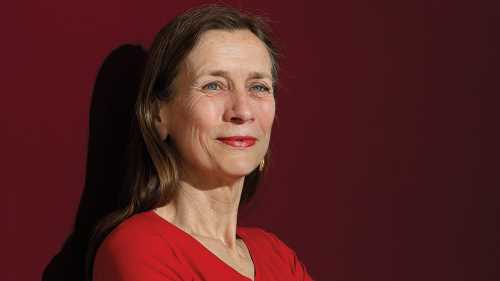After such a well-attended comeback edition for the Berlinale, this week’s news that festival co-head Mariëtte Rissenbeek is stepping down next year came as a big surprise.
It turns out Rissenbeek will have reached retirement age (67) by March 2024, when her contract as executive director of the Berlinale expires. That leaves her with one more edition to prepare with her teammate Carlo Chatrian, the festival’s artistic director. The pair has formed a dynamic duo since being jointly appointed in 2018, succeeding Dieter Kosslick.
In an interview with Variety, Rissenbeek said that after next year’s festival, she’s decided she will dedicate herself to other things she enjoys, such as social and humanitarian work. She also spoke about her personal highlights during the 2023 edition and what’s next for the Berlinale.
“I didn’t feel like doing another five years. Even though it’s very rewarding, this job does take a lot of time, it’s absorbing, and I’m also interested in other things,” said Rissenbeek, who previously worked for the promotional body German Films. “I’ve always engaged myself with foundations or worked for non-profit organizations. Honestly, I didn’t really have time for that in the past four years.”
Speaking of her greatest achievements at the Berlinale, she cited the new festival venue at the Verti Music Hall, which hosts 1800 seats. “It’s always a risk to introduce a new location, especially in a region of the of the city which we had not been present before, but it was so well-accepted, and we had sold out screenings almost every day,” Rissenbeek said.
She also mentioned the Generation section, which addresses a young audience. “We are now in the process of giving that section more impact and working more with theaters across Germany to motivate a young audience to come to the cinema and not stay at home and stream films only,” the executive continued.
Rissenbeek has also played a major role in enlisting high profile sponsors to the festival — notably Armani Beauty and Uber, which became the principal partners of the Berlinale this year.
“The large number of new partners — like Campari, Armani Beauty and Uber — we had this year was quite astonishing and amazing, especially since we couldn’t carry out normal Berlinale editions in 2021 and 2022 and couldn’t offer any hospitality or any real visibility for those two years!”
This year’s buzzy lineup included “Golda,” starring Helen Mirren as the former prime minister of Israel; “Seneca” with John Malkovitch; “Kiss the Future,” a documentary about U2’s relationship with war-torn Sarajevo in the 1990s, which was produced by Ben Affleck and Matt Damon; and an honorary tribute to Steven Spielberg for “The Fabelmans.” Kristen Stewart presided over the jury.
Over the years, some industry players have noted that festival’s winter dates have made it difficult for the Berlinale to attract awards contenders, but Rissenbeek said there are no plans to reschedule. Berlin is “nicer in summertime,” but that’s partly why the festival has to take place in the winter.
“We are a public festival, an audience festival, and in summer, the audience also likes to enjoy other things, like sitting outside, drinking a beer or attending open air events,” she said. She added that the festival circuit also has its own ecosystem, meaning that Berlin wouldn’t want to overlap with Cannes or other festivals in the spring and summer.
When announcing the news of Rissenbeek’s decision, German Culture Minister Claudia Roth praised the executive for prompting a “generational change” within the leadership of the Berlinale. Rissenbeek predicted a younger person will succeed her, while Chatrian is “definitely” renewing his contract, Rissenbeek said. “He’s much younger, don’t forget!” she quipped.
After the 2024 edition, the Dutch-born Rissenbeek said she plans on working for “initiatives on supporting education of young people in several African countries,” as well as back home, to “support young people” through their studies.
Read More About:
Source: Read Full Article
